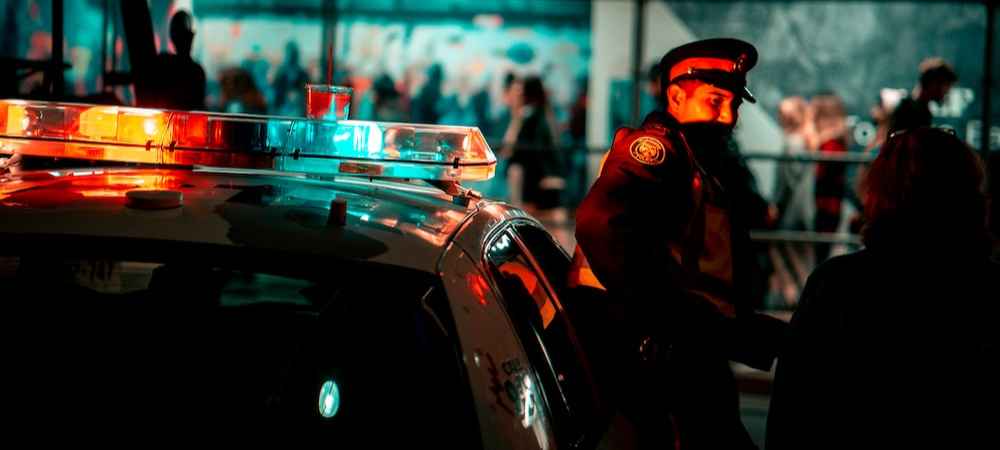What’s a Chemical Test for DWI?
What’s a chemical test for DWI? Driving while intoxicated (DWI) – without enhancement – is a misdemeanor in Texas. When law enforcement suspects you of drunk driving, the officer is likely to perform a chemical test for DWI. This test detects alcohol in your system at a specific point in time.
Curious about how these tests work? The Martinez Law Firm is here to help. When you face a DWI arrest, it’s important to have an advocate on your side.
Attorney Herman Martinez is your advocate in Houston, TX. Schedule a consultation to learn more about your legal options.
Tests Used By Law Enforcement in Texas
When an officer pulls you over under the suspicion of drunk driving, how do they prove it?
In Texas, there are three common chemical tests used to determine a driver’s blood alcohol concentration (BAC):
- Breath test
- Blood test
- Urine test
Each test allows the officer to see whether or not to arrest and charge the driver for a DWI. Let’s take a look at how these tests work.
Breath Test for DWI
Law enforcement uses a machine called a Breathalyzer to perform a breath test. Generally speaking, these are the most common type of chemical test for DWI. To administer the test, the officer has you blow into the machine.
Then, it calculates the level of alcohol in your breath. It determines this with a percentage of the alcohol it detects. Typically, these tests are not as accurate as a blood test.
However, they are far easier for the police to administer in a traffic stop.
But, what happens when you refuse to take a Breathalyzer test? When a cop pulls you over, they ask you to take a breath test if they suspect drunk driving.
At this point, you do not have to consent to the test. However, you then face consequences when you refuse the test. While you do not have to perform the test, the next step is for the officer to request a warrant for a blood test.
Then, refusal results in even worse consequences.
DWI Blood Test
In Texas, the legal limit of intoxication is 0.08% BAC. While it’s more common for officers to use a breath test, blood tests are also quite common. In part, this is because breath tests are far less accurate.
To measure the levels of alcohol in your blood, they take 100 milliliters from you. Then, the blood goes through a test called “gas chromatography” that determines your BAC.
Can I Refuse a Blood Test?
Technically, you have the option to refuse to consent to the test. However, this comes with consequences. Refusal allows the state to suspend your driver’s license.
Additionally, the prosecution then has the option to use the refusal as evidence against you. More than likely, they have a warrant for the blood as well. This means you have to submit to the chemical test for DWI or face arrest.
Generally, submitting to this test is the last thing you want. It is invasive and unpleasant. Moreover, it’s more difficult for an attorney to argue against in court.
Now, both breath and blood tests have their flaws. However, juries tend to find blood tests more believable, which requires a great deal more legwork in court.
Urine Tests for DWI
A urine test, or urinalysis, is generally reserved for suspected driving under the influence (DUI) of controlled substances and drugs. In DWI cases, they tend to be the least reliable of these three chemical tests.
Here’s why that is.
- The officer pulls a driver over under the suspicion of a DWI or DUI.
- A urinalysis detects an illegal drug. However, drugs stay in the system much longer than alcohol.
- This means that the test does not prove the presence of current use in either case.
- Moreover, at the time of the test, the driver might be completely sober.
As with the other tests, you have the option to refuse this chemical test for DWI (or DUI). However, there are consequences in this instance as well.
The Problem With BAC Tests
Among DWI lawyers, it’s no secret that these tests are not reliable. There are many factors that can cause a BAC to appear higher than it actually is upon testing. Health conditions and medication are common issues that alter the results.
In some cases, inaccurate results lead to a wrongful conviction for someone who never committed a crime. If the State has a chemical test, your case becomes more difficult to argue. Unfortunately, that has the potential to result in an unfair conviction – especially if you don’t have experienced representation.
When a DWI is on your record, it changes your life. Even minor DWI cases have significant penalties. If you face DWI charges in Houston, TX, you need an experienced DWI defense lawyer on your side.
At The Martinez Law Firm, we always pursue the best possible outcome of your case.
Experienced Representation for DWI Cases
Now that you know more about the chemical test for DWI, one of the most important factors to remember is that blood is more difficult to defend against than breath. In truth, not every DWI attorney understands how these tests work. Moreover, the prosecution rarely completely understands the results.
That’s why you need an experienced, aggressive advocate on your side. At The Martinez Law Firm, we have over 25 years of experience fighting DWI charges for our clients.
When you find yourself on the wrong end of BAC tests, contact our firm immediately to schedule a free consultation. Let our legal team fight for you.







